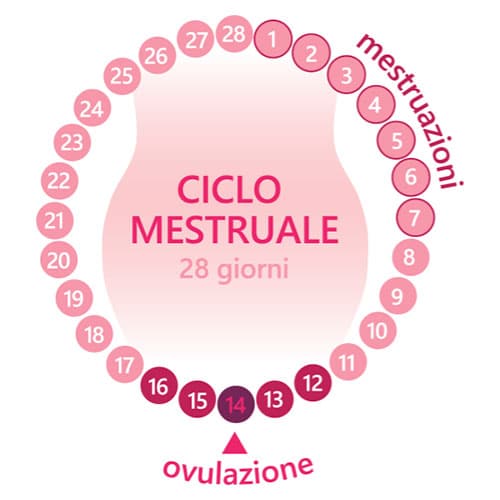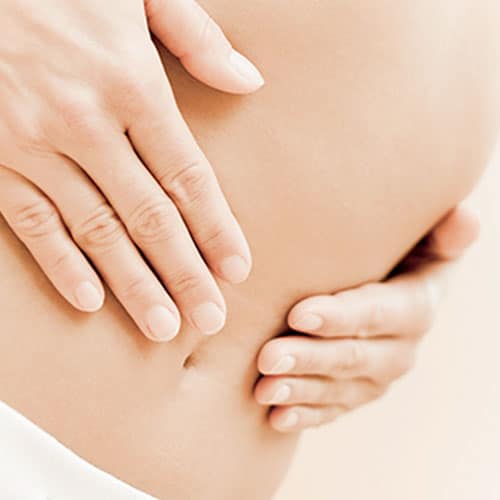


Having some symptoms of pregnancy is not diagnostic, as they are not specific and may vary between women.
The most common symptoms of pregnancy in the first three months are described as follows:
The lack of the menstrual cycle is the first sign of pregnancy, but is not reliable. Indeed, there are cases in which the cycle is coming late and others in which there are some blood discharge, more or less abundant, in early pregnancy.
Nausea is a classic symptom of a pregnancy, but not every woman experiences it. It may start when the blood levels of beta-hCG are sufficiently high, the 6th – 7th week of pregnancy. Most pregnant women report a higher sensitivity to smells and flavors. In ancient times, these symptoms were very important to avoid contacts with toxic foods. Nowadays foods are safe, but our body maintains this memory. There isn’t any effective remedy for nausea, but it is advisable to intake small meals and to choose acceptable foods. In most cases, the symptom regresses spontaneously at the end of the first trimester.
Breast tenderness is due to an increased estrogen and progesterone blood level, and may happen also during the premenstrual phase in some women. If a pregnant woman does not have breast pain, it does not mean that she is at risk for miscarriage.
Tiredness and somnolence are very common symptoms of pregnancy. A pregnant woman needs to rest. At the end of the first trimester (i.e. after the 14th week) she will typically feel her usual self again.
It is very common to faint, but happens more often in the third trimester (i.e. after 26th week) when the grown uterus presses on the abdominal veins, which go from the legs to the heart. If the woman feels like fainting, it is advisable to stop and to lay down with raised legs. In a few minutes, everything will return to normal.
Constipation may happen because of the effects of progesterone on the muscular wall of the intestine. It can be relieved by a high intake of fluid and fibres (fruits and vegetables), and eventually with functional foods. The doctor or midwife may advise to take medication (such as macrogol), but herbal laxatives, such as senna, cassia, rhubarb, aloe, cascara, and frangula are not advisable.
Do not take any initiative based on the content of this site, this is for informational purposes only and does not substitute medical advice. If you have any doubt concerning your health, you must ask your doctor.